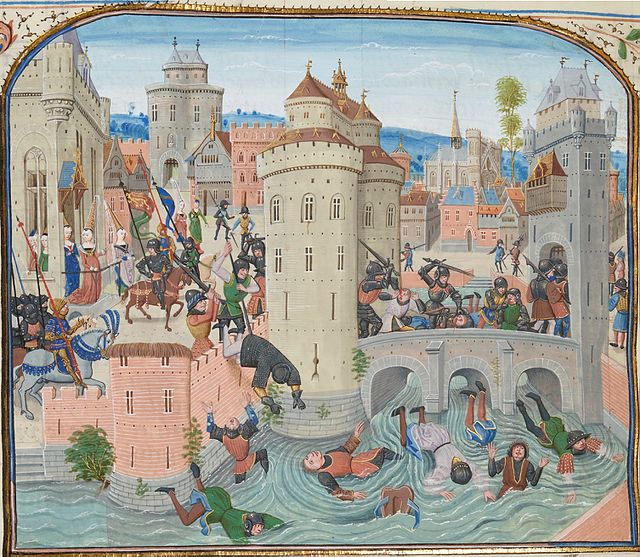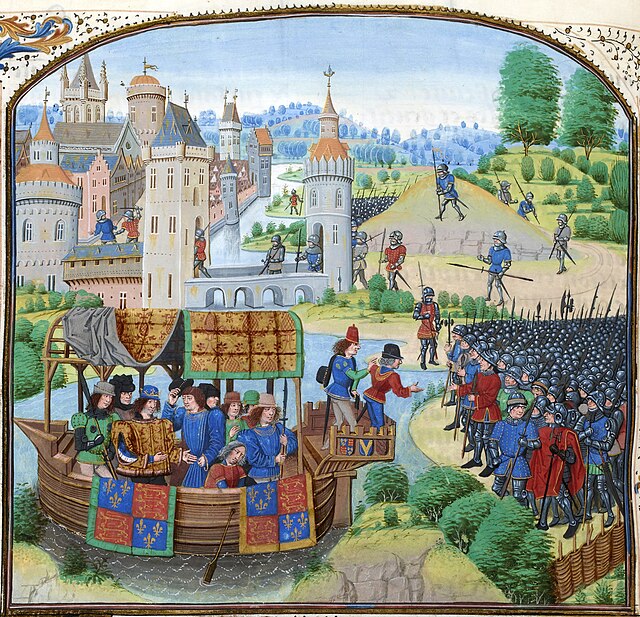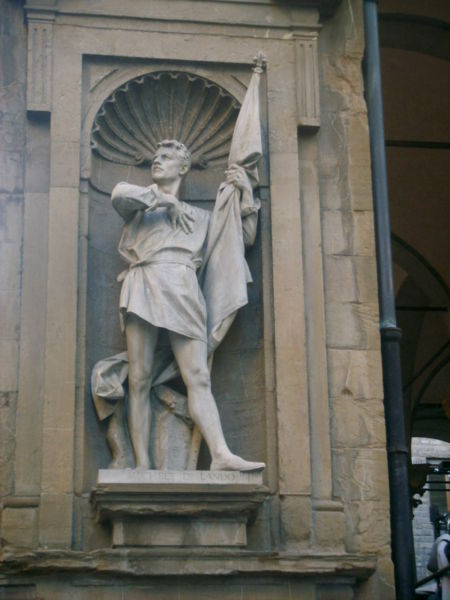The Jacquerie was a popular revolt by peasants that took place in northern France in the early summer of 1358 during the Hundred Years' War. The revolt was centred in the valley of the Oise north of Paris and was suppressed after over two months of violence. This rebellion became known as "the Jacquerie" because the nobles derided peasants as "Jacques" or "Jacques Bonhomme" for their padded surplice, called a "jacque". The aristocratic chronicler Jean Froissart and his source, the chronicle of Jean le Bel, referred to the leader of the revolt as Jacque Bonhomme, though in fact the Jacquerie 'great captain' was named Guillaume Cale. The word jacquerie became a synonym of peasant uprisings in general in both English and French.
Prisoners in an illuminated manuscript by Jean Froissart
Defeat of the Jacquerie in Meaux on 9 June 1358
Popular revolts in late medieval Europe
Popular revolts in late medieval Europe were uprisings and rebellions by peasants in the countryside, or the burgess in towns, against nobles, abbots and kings during the upheavals between 1300 and 1500, part of a larger "Crisis of the Late Middle Ages". Although sometimes known as Peasant Revolts, the phenomenon of popular uprisings was of broad scope and not just restricted to peasants. In Central Europe and the Balkan region, these rebellions expressed, and helped cause, a political and social disunity paving the way for the expansion of the Ottoman Empire.
Richard II of England meets the rebels of the Peasants' Revolt
Michele di Lando, placed in the office of gonfaloniere of Florence by the revolt of the Guild-less Ciompi
Defeat of the Jacquerie




